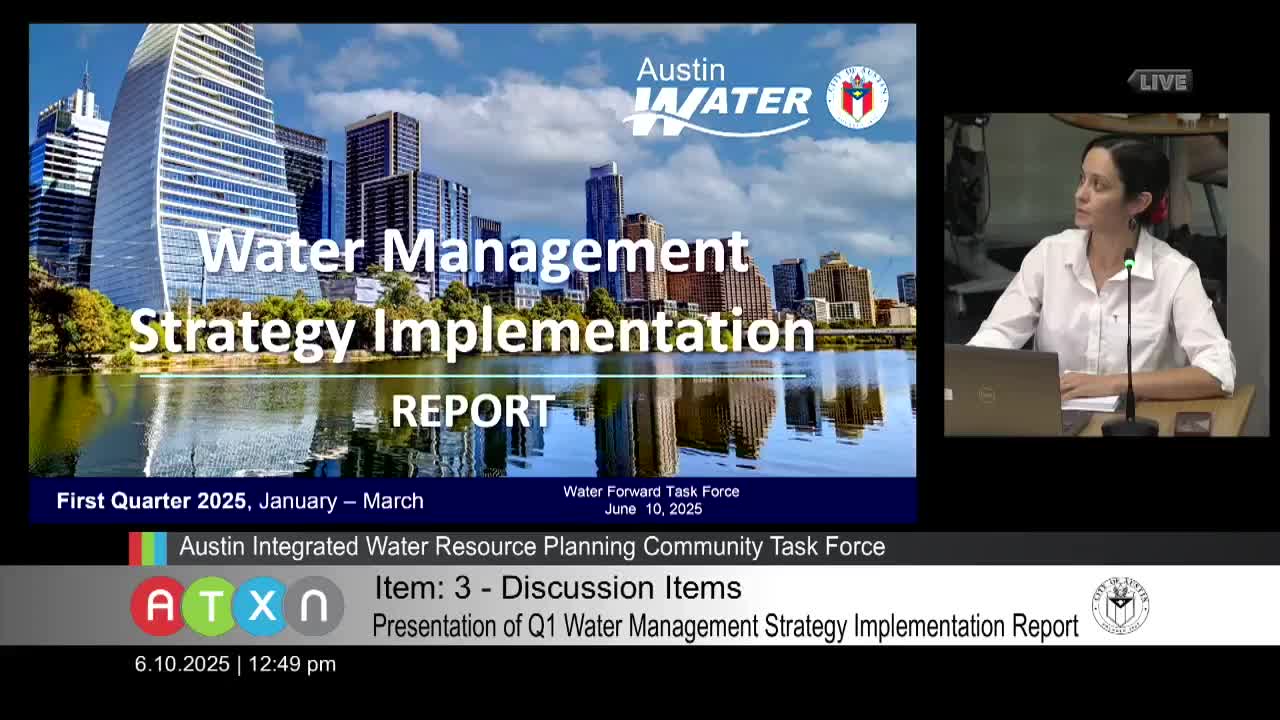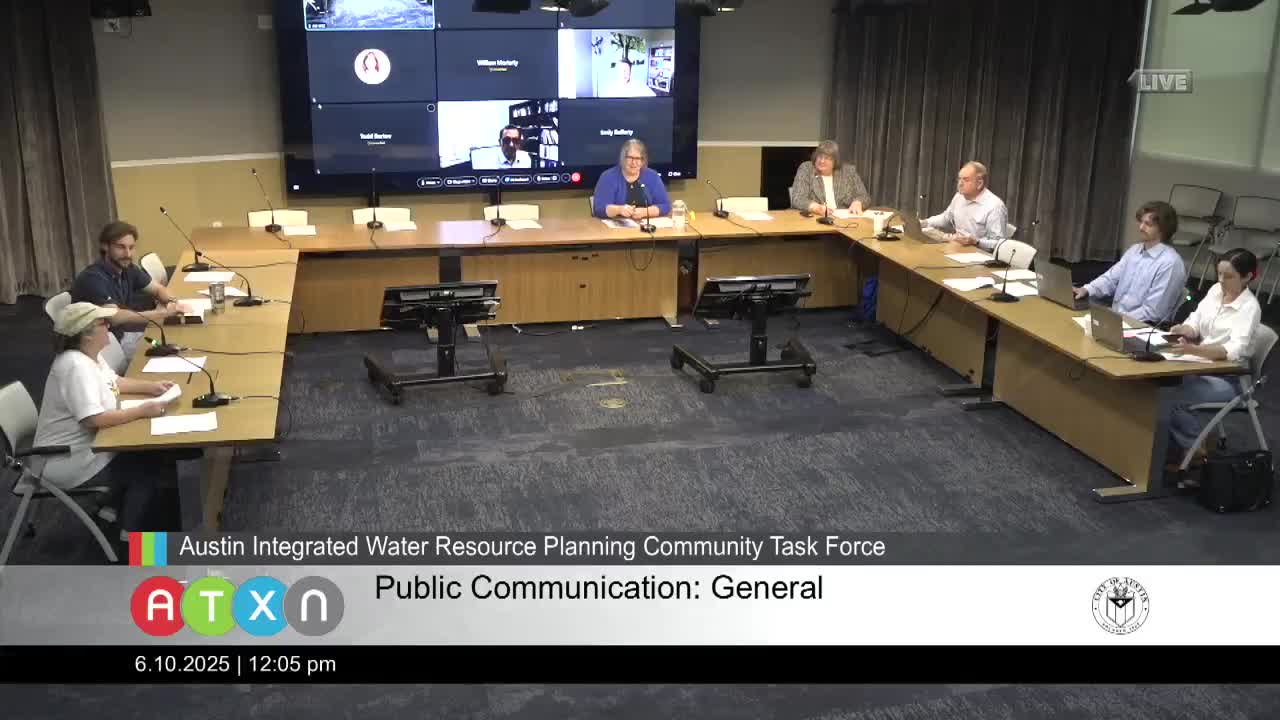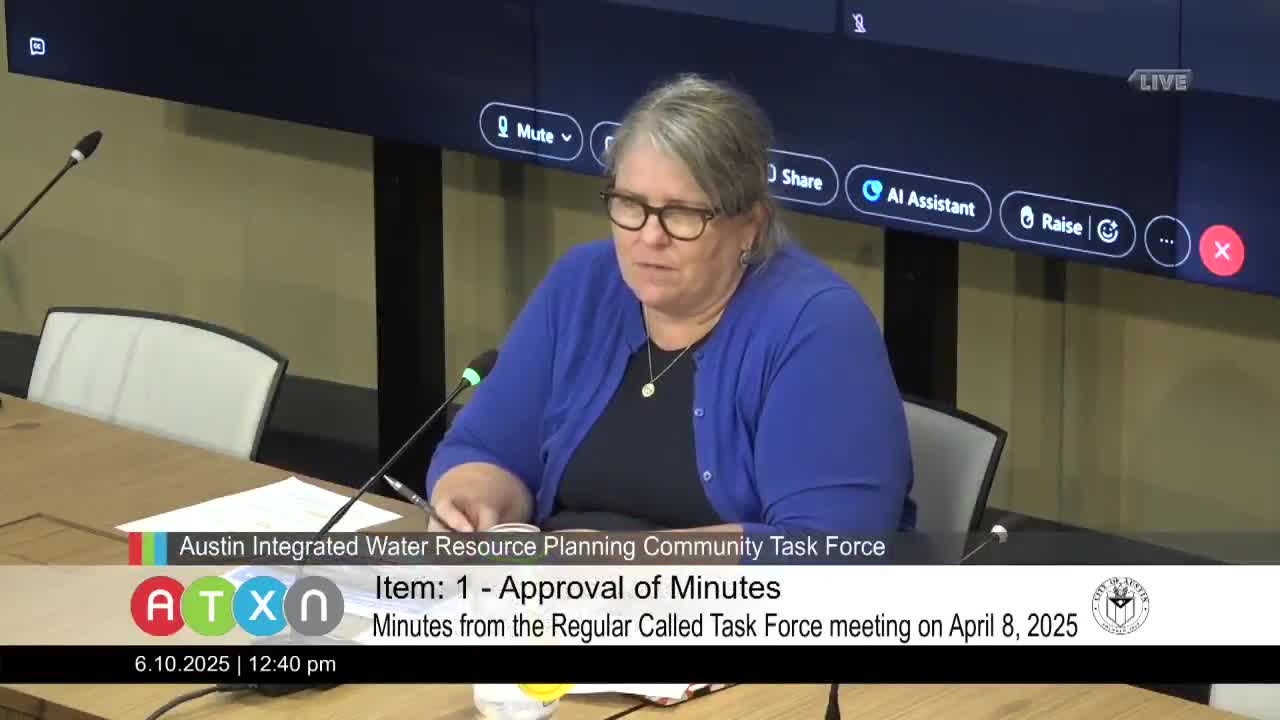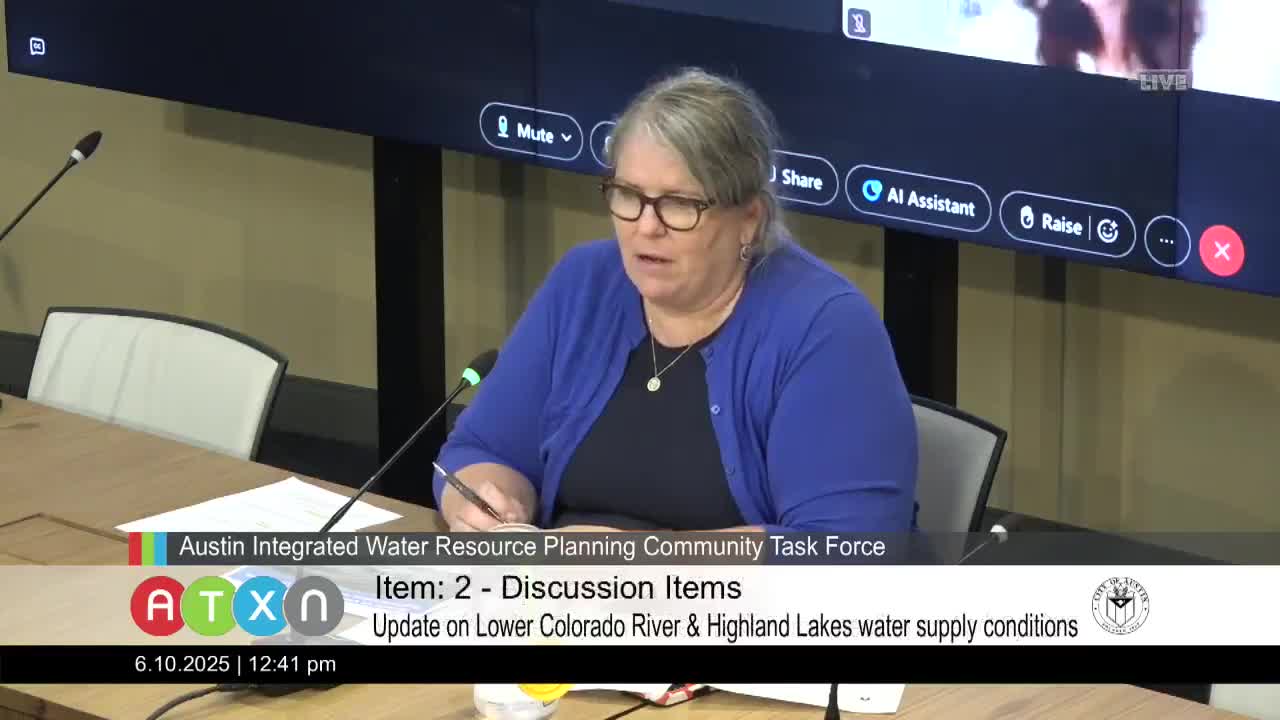Article not found
This article is no longer available. But don't worry—we've gathered other articles that discuss the same topic.

Austin Water presents Q1 implementation report: smart meters, rebates, reclaimed water and regional engagement on ASR

Community groups press Austin Water Forward Task Force on equity, outreach and timelines

Water Forward Task Force approves April 8 meeting minutes

